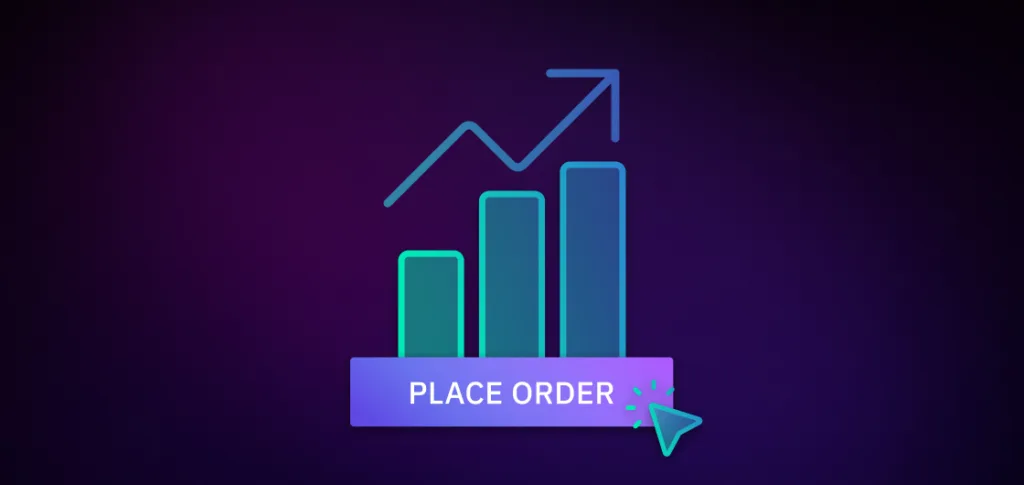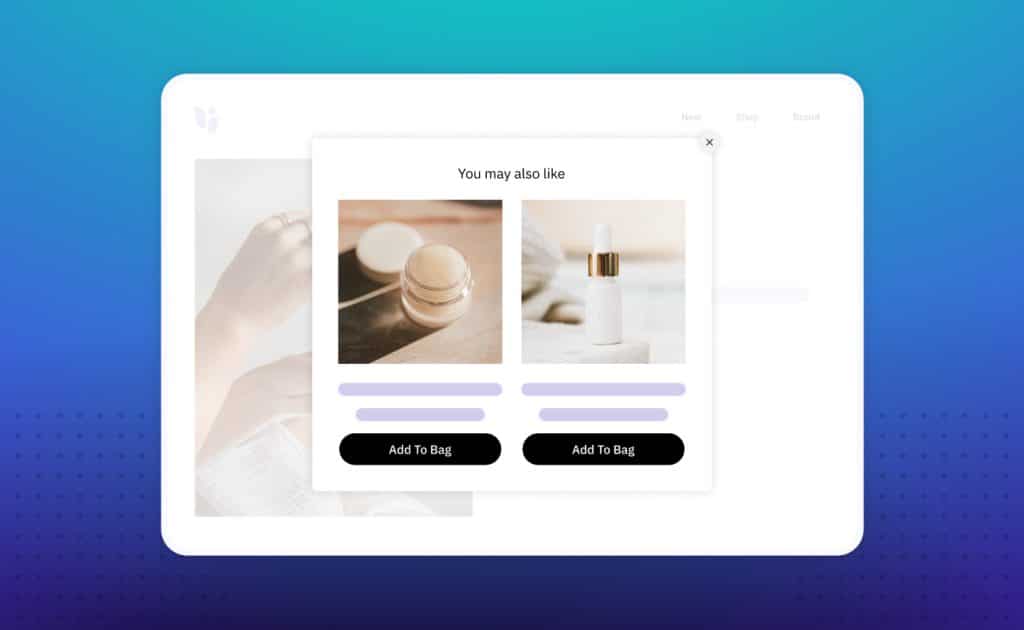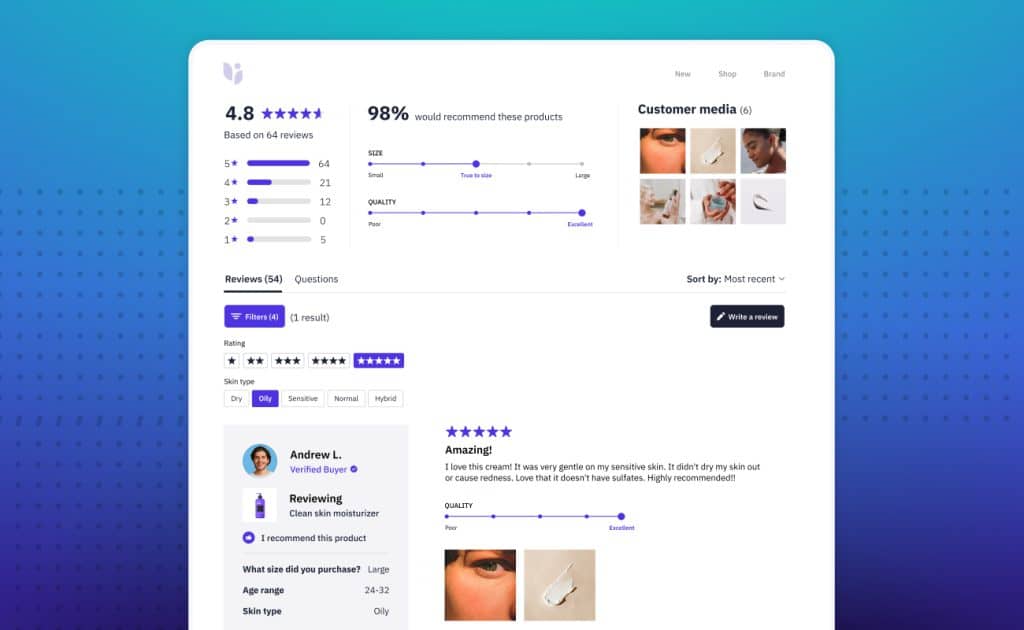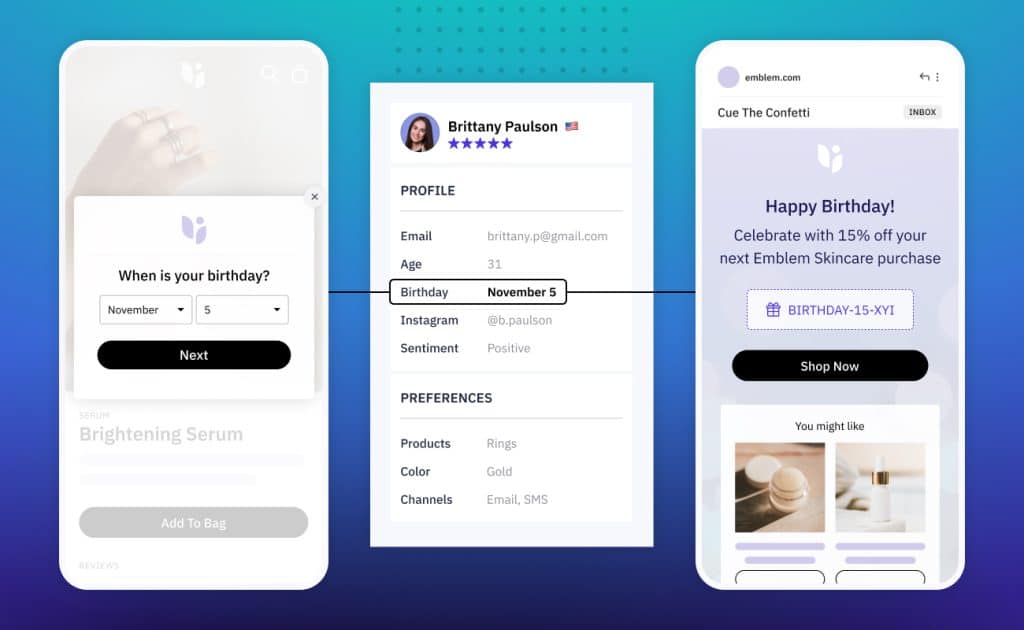
- Ecommerce Marketing
- Reviews and UGC
12 Ecommerce Growth Strategies to Maximize Sales in 2024
Megan Wenzl | Apr 23, 2024
Mar 14, 2023 | 6 minute read

Lindsay Kolinsky
Director of Marketing
When thinking about your favorite restaurant, what comes to mind? The delicious food? The relaxing ambiance? Or perhaps it’s the staff who knows your name, your favorite dish, and the exact booth in the restaurant that you like to sit in?
Chances are all of these things play a factor. But what many people consider most powerful is the last — the fact that the wait staff remembers you and your individual preferences. This is personalization, and it’s what today’s consumers have come to expect from the customer experiences they have — in-person and online.
In fact, brands that personalize the online experiences of their customers typically see an increase in several key areas, including marketing spend efficiency, average order value, trust & loyalty, and even revenue.
As such, today’s ecommerce brands have an enormous amount of opportunity to use personalization to engineer memorable experiences, build stronger relationships and boost their bottom lines. Whether through customizing landing pages, creating targeted ads, or creating product recommendations, there are many ways to inject personalization across all the various stages of the customer journey.
But as the digital marketing agency Power Digital, notes: “For many brands, personalization begins and ends at serving relevant offers based on historical behavior, location or purchase data, but today’s consumer expects much more. It’s all about crafting a customer-centric journey that is tailored to each audience segment important to your brand, and native to their behavior.”
Let’s discuss a few ways you can make the journeys your customers are taking more personal.
If customers can’t find what they’re looking for quickly and easily, chances are they won’t make a purchase. That’s where the right amount of personalization can mean the difference between a sale or an abandoned cart.
Custom product recommendations, fueled by Shopify platforms like Rebuy & Nosto, allow you to serve up products based on your customer’s buying and browsing habits. Not only does this get rid of the need for customers to spend hours browsing your online store, but it shows that you understand their individual preferences, and can proactively predict exactly what they are looking for.
Picture this: a customer is browsing through their favorite cosmetics store, looking for a skincare product that can even their facial tone and soften wrinkles. They’ve identified a few products that might do the trick, but they still aren’t sure which one to choose. Then suddenly, a pop-up notifies them of a serum that not only evens facial tone and softens wrinkles, but also compliments the other products in their skincare routine tailored towards dry skin. In this moment, things went from a missed sale to a memorable experience leading to a satisfied customer.

For brands with many SKUs, product recommendations are particularly important. While a wide array of products can be a differentiator for your business, it can also create complexities for your customers. Utilizing demographic, psychographic, and behavioral data to serve up the most relevant products not only provides a better customer experience, but it can also increase conversion rates, improve average order value and reduce shopping cart abandonment rates.
High-quality customer reviews are the lifeblood for ecommerce brands today. In fact, 97% of consumers report looking for reviews at least some of the time before making a purchase. Reviews not only allow customers to get a sense of the experiences that past customers have had with your brand, but with the right tools, they can inject a dose of personalization into the buyer’s journey.
While basic review integrations offer a snapshot of prior customers and their purchase experiences, innovation forward reviews platforms allow customers to easily pull out information from reviews that is most relevant to them and their individual needs. Okendo does this by allowing users to filter reviews by specific product characteristics and customer attributes.
Many ecommerce brands, such as those in the beauty space, often face high return rates because shoppers buy the wrong color or a product that just isn’t right for them. This is where the ability to filter for only the most relevant information increases customers’ ability to make informed purchase decisions and decreases the likelihood of returns and/or poor overall experiences.

For example, by allowing a customer to filter makeup reviews by skin tone and skin type, they can surface first-hand insights from past customers that share similar attributes. With these insights and visuals, uncertainty gets replaced by confidence, leading to higher conversion and sales.
Most Shopify stores implement some form of a customer rewards program that allows them to build loyalty and drive repeat business. And while any rewards program is better than not having one, in order to fully optimize a program’s potential it’s important to personalize it.
One of the best ways to do this is by acknowledging something unique to your customer, such as their birthday or an anniversary. By using specific details (zero-party data) that you gather from your customers, you can send them personalized promotions to acknowledge their special day and put a human element on your communications.

Tools like Okendo Surveys make it easy to gather continuous insights that you can use to customize your rewards programs. By leveraging in-moment micro-surveys, you can collect customer insights, such as birthdays and anniversaries, in highly contextual ways that allow you to build rich customer profiles. These profiles will serve as the fuel to power your entire personalization strategy.
Your goal isn’t just to help your customers make the most informed purchase decisions, in many cases it’s also to help them maximize the value of that product. And just like everything else, in order for you to do that, you need to have the right customer data.
Another tool that can come in handy for this is customer quizzes. Customer quizzes can not only help you identify your customer’s specific needs and match them with the appropriate products, but they can also help you serve up valuable pieces of product education and other personalized content.
For example, suppose that a customer purchases a pair of yoga pants from your Shopify store, but indicates through a quiz, survey, or product review that they love to run. With that information in hand, you can send them personalized content related to running or notify them of a 5K that your brand is sponsoring in their area.
Similarly, another customer who purchases a hydrating hair conditioner might benefit from content that teaches them how to care for their hair or reach specific hair goals. It’s simple: when brands communicate with their customers about their personal needs and preference — rather than just blindly trying to sell to them — sales follow.
To reap the full benefits of personalization you must first understand its most important factor: relevance.
In order to create personalized campaigns, you have to know and understand your audience. That is only possible with the right customer data. However, with the right insights in hand, you can execute a personalization strategy that leads to reduced acquisition costs, lower ad spend, higher sales, and higher customer lifetime value (LTV).
Stay tuned for our next blog on the different methods you can use to collect data that’ll take your personalization strategy to the next level.
Related articles
Ready to learn more?